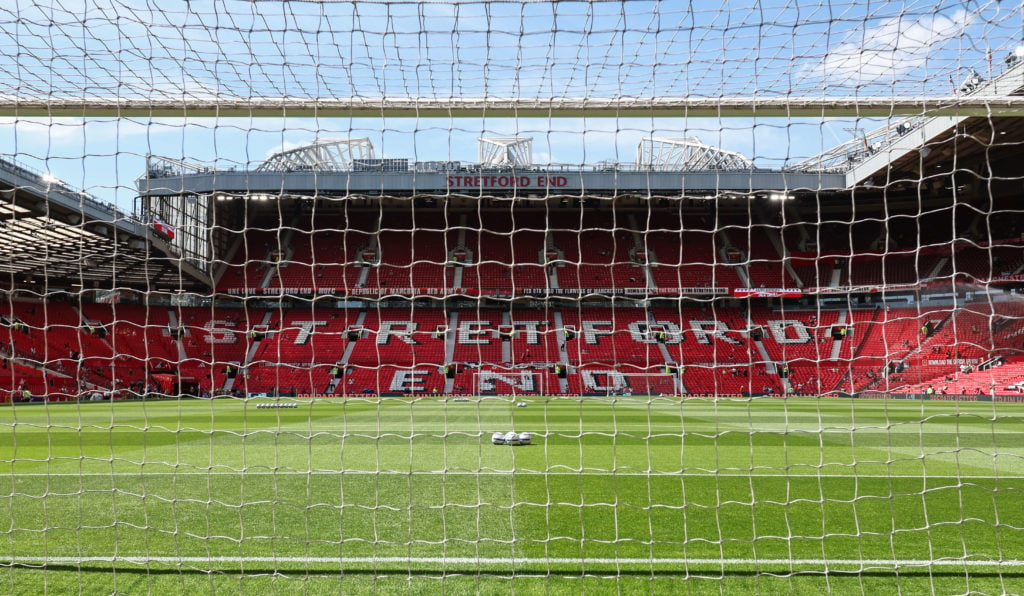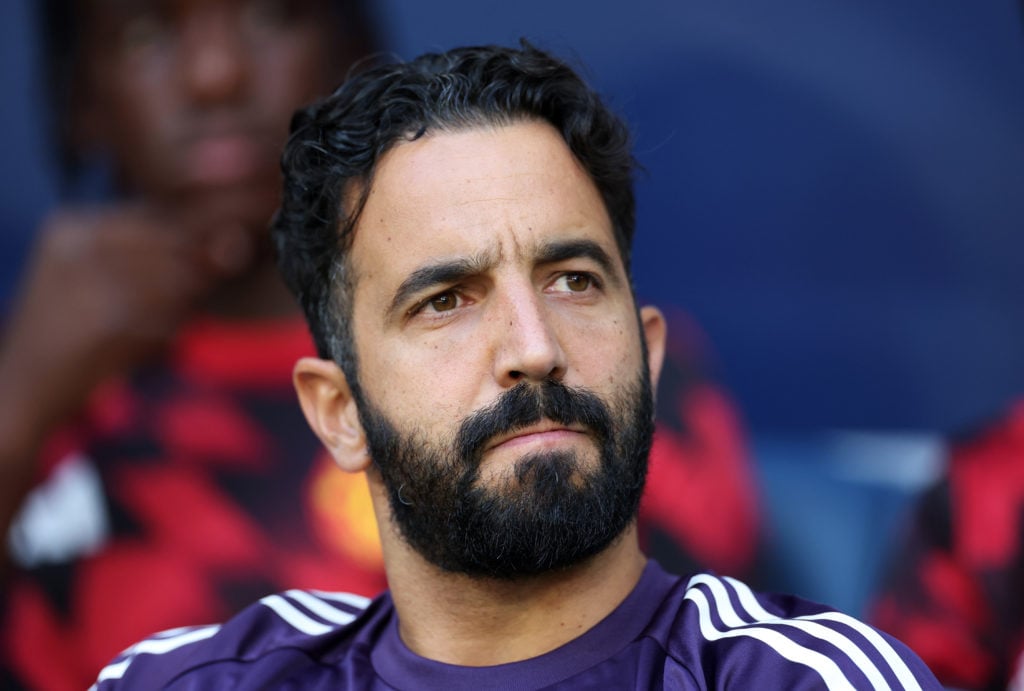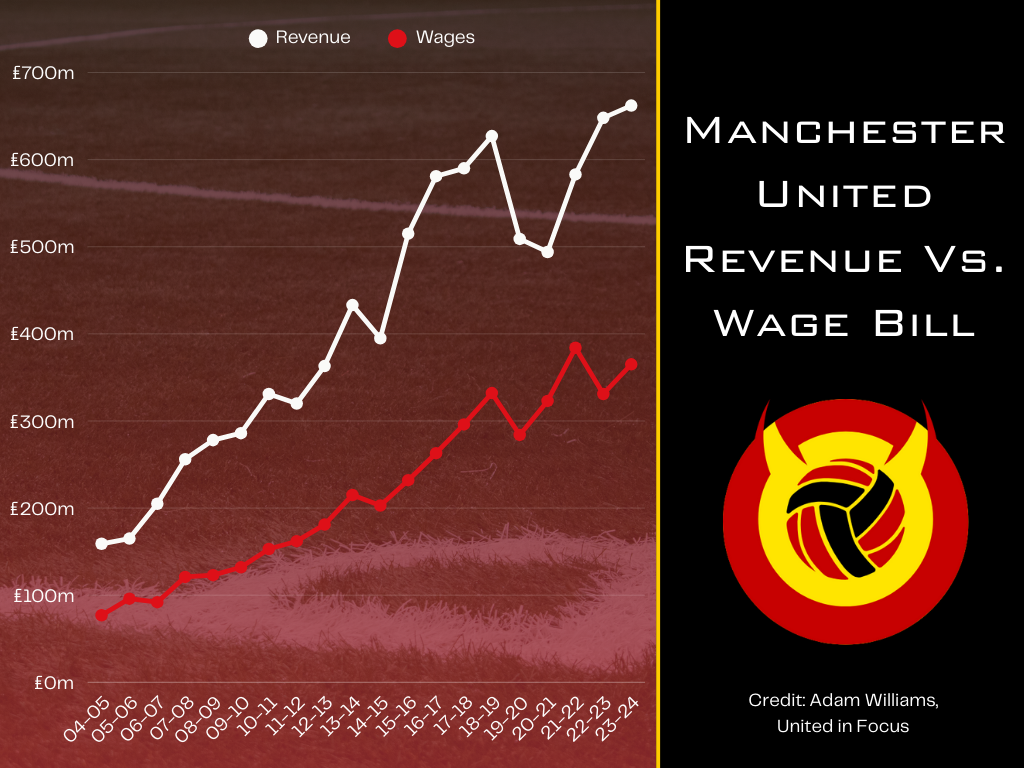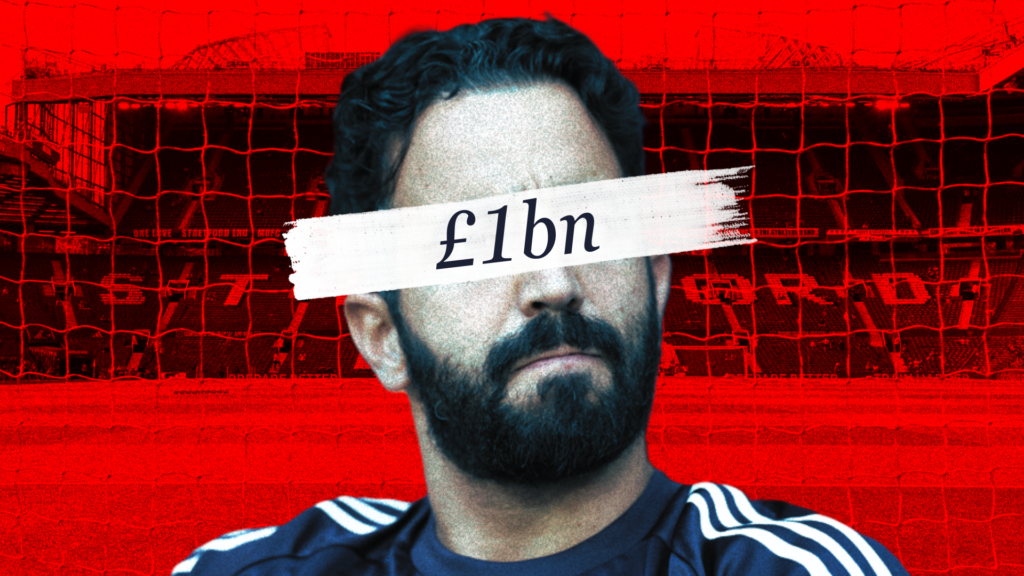Despite enduring perhaps their worst ever season in 2024-25, Manchester United are still behaving like a superpower in the transfer market. Financially, there are simply very few who can compete.
At one point, it was presumed that Profit and Sustainability Rules (PSR) would restrict what they were able to do this summer, but – thanks to a quirk of how the Red Devils report their finances to the Premier League – they now have ample headroom to make new signings.
Mateus Cunha’s £62.5m move from Wolves was a statement of intent, followed by Bryan Mbeumo from Brentford, who took United’s spending close to £130m. And with United expected to finalise a deal for Benjamin Sesko imminently, the £200m mark is on the horizon. Carlos Baleba, over whom United have made contact with Brighton, could further engorge United’s gross outlay.
 Photo by Lee Parker – CameraSport via Getty Images
Photo by Lee Parker – CameraSport via Getty Images
And while they will surely supplement their new additions with sales, none have been made so far. The biggest departure has been Marcus Rashford, on loan, to Barcelona. Clearly, Manchester United feel they are financially resilient enough to be aggressive in the market.
A skim through the club’s most recent quarterly accounts confirms that stance. Sir Jim Ratcliffe and the Glazers have signed off on financial statements which predict club-record revenues of up to £670m for 2024-25. With Ruben Amorim having failed to secure European football of any description in 2025-26, that figure will markedly decline this coming season, but United are well-insulated from the drop-off.
Manchester United poised to break commercial and matchday income records
The finance expert and Greg Cordell’s latest forecasts show United hitting new heights in terms of both commercial and matchday income for 2024-25.
Commercial income – which is comprised of sponsorship, retail, events and more – will be somewhere in the region of £330m. That will be a new club record and only around £15m behind the Premier League record set by Manchester City in 2023-24.
And despite the plans to build a new stadium, Old Trafford is more lucrative than ever. The £157m they are predicted to have earned in 2024-25 is £20m more than they managed in the previous financial year. It will also break their own Premier League-wide record for cash earned through the turnstiles in a single season.
However, while there is growth across the board, it is far slower than many of their peers. The rest of the so-called Big Six are making huge strides financially every season. Liverpool, for example, are set to overtake United in the turnover stakes for only the second time since 1992.
United have come from a high base, yes, but they have lost the enormous competitive advantage that their revenue used to give them every year. And that has coincided with their regression on the pitch.
Man United can reach £1bn turnover soon – but only if they get their act together on the pitch
As quoted by The Independent earlier this week, Amorim said he had “no doubts” that United can one day challenge for the Premier League and Champions League again.
“There are some things you cannot buy that this club has: pedigree, history, fans. With all these things, if we have a different culture, we can return to our place,” the manager continued.
United’s woeful showing in the league last season probably cost them around £40m in prize money relative to what Ineos had initially budgeted for. Had they won last season’s Europa League final and secured a place in the Champions League, they could have trousered up to £150m in 2025-26.
And those are just the top-line benefits. Matchday income could perhaps reach £200m in a Champions League season, while commercial revenue – which has been pretty stagnant for some time now – would boom if the good times came back to Old Trafford.
There is an example in Real Madrid, who reached £900m revenue in the last financial year. Soon, they will become the first club to reach £1bn.
However, as football finance expert Kieran Maguire explains in exclusive conversation with UIF: “Manchester United have the global cache to be number one.
“They have been number one on many occasions, but they have drifted in recent years. I think it brings back Ed Woodward’s comments about not needing to win football matches to be commercially successful. I think Amorim would beg to differ.
“And yes, they are commercially successful, but they aren’t as commercially successful as some other clubs who are winning more football matches and are therefore able to offer trophies to sponsors and bring in the bonuses.
 Photo by Linnea Rheborg/Getty Images
Photo by Linnea Rheborg/Getty Images
“So, could they get to £1bn. Yes, you only need to look at the direction of travel even in a fallow period on the pitch.
“What is driving that? They have the deal with Snapdragon. They are working with AI, which is one of the biggest drivers of economic growth. The money they are paying United is a drop in the ocean. With the new stadium, you would be looking at matchday revenue reaching £200m. If they get the product right on the pitch, it can go further.
“From the owners’ point of view, they would like an even bigger expanded Champions League format, the Club World Cup, fewer low-value fixtures.
“Real Madrid will be the first to get to £1bn. Of the clubs who have the capacity to be second, Barcelona have shot themselves in the foot with the payday loans, PSG don’t have a big enough stadium, and Bayern Munich don’t get enough money from the Bundesliga TV deal.
“So yes, United certainly have the ability to be second if they can get things right on the pitch and, as Amorim says, start competing for the biggest trophies.”
Premier League CEO rejects calls to cut size of the league, as Man United have previously proposed
As part of their Project Big Picture proposal in 2020, United posited the idea of reducing the size of the Premier League to 18 teams.
They aren’t the only club to have held that view. The theory, as Maguire has pointed out, is that a smaller Premier League would reduce the number of “low-value” games. It would also mean clubs could potentially have smaller squads and, as a result, lower wage bills.
 Manchester United revenue vs wage bill
Manchester United revenue vs wage bill
Credit: Adam Williams/United in Focus/GRV Media
However, Premier League CEO Richard Masters has rejected this idea.
Asked in a recent interview with BBC Sport whether it was something he would consider, the executive said: “I don’t think we should be forced into that decision.
“I am all for the growth of the game and the exciting competitions our clubs can participate in – but not at the expense of domestic football.”
“Since 1994 the Premier League has been 380 matches, 20 clubs. We haven’t changed shape at all.
“Now we are now starting to redesign our domestic calendar at the altar of European and global expansion.
“We are asking the players to play in more matches. There has to be, at the top of the game, a proper dialogue between Fifa and all the stakeholders about how these things go forward.
“That has been sadly missing.”

